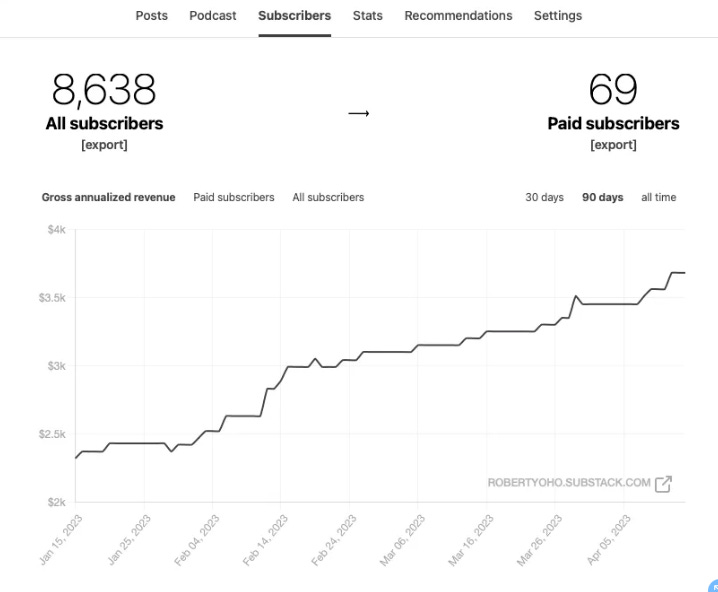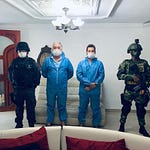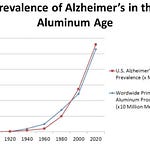The title is from Shakespeare's Julius Caesar in the scene where Caesar reproaches one of the Roman senators who is stabbing him to death. He says, "You too, Brutus?"
Many doctors have renounced their patient-first ethics and have fallen to fear, bribery, temptation, or indifference. They are Judases; know them by their fruits:
Prancing expert witnesses—whores of the court—abandoning any pretense of truth for $600-$1000 an hour.
Pediatricians padding their bank accounts hawking profitable vaccines that cause our babies' disability and death.
Oncologists snatching $600,000 yearly in chemotherapy kickbacks for therapies that mostly do not work.
Psychiatrists. None of the drugs they prescribe have been studied using proper controls, and all cause violence, suicide, addiction, or health destruction.
Orthopedists and other surgeons operating on anything they can slap a billing code on.
And others.
The following are explanations but not excuses for these "physicians."
Doctor burnout
This excerpt is from Seamus O'Mahony's Can Medicine Be Cured (2019). He walked a road related to mine and finally woke up.
More than most professions, medicine colonizes one's life. After graduation, I was consumed by the demands of the job. Years went by in a blur of weekends on call and post-graduate examinations. My horizon was always near: the next job, the next qualification. For many years, I embraced this way of living and thinking. It is not without its advantages: medical career structures, and what passes for success in the profession, are so rigid and clearly laid out that the true careerist knows instinctively what to do in any given situation.
I slowly ascended the ladder to the status of consultant in a British National Health Service teaching hospital, spending many years along the way in various training positions. As a young consultant, I became something of a Pharisee, a vector of institutional and professional culture. By the age of forty, I had achieved a state of perpetual busyness, and might have continued along this well-trodden pathway for the remainder of my career.
A series of events during my forties changed everything; the details are both too tedious and too personal to recount here. When, at the age of fifty, I surveyed the wreckage, I concluded that I had somehow sabotaged this promising career. The sabotage may have been subconsciously deliberate: the real problem was a loss of faith, an apostasy.
The cartoon character Wile E. Coyote falls to his doom in the canyon only when he no longer believes; as long as he is unaware of his situation, he remains blissfully suspended in mid-air. My apostasy did not extend to the clinical encounter, and old-fashioned doctoring. I lost faith in all the other things: medical research, managerialism, protocols, metrics, even progress. I became convinced that medicine had become an industrialized culture of excess, and that Ivan Illich's assertion that it had become a threat to health—which seemed ludicrous to many doctors in the mid-1970s—was true…
Medicine has become a pseudo-religion; our patients must be gently encouraged into apostasy and renunciation... [We have all] been enslaved by the medical–industrial complex, and it is time we rebelled. Society needs to reach a new accommodation with old age and death.
Plastic surgeons get burned out or tossed out.
Nearly all my contemporaries eventually washed out or gave up. I tell you their tales to illustrate the rugby scrum they live inside. Although I dodged bullet after bullet, this inevitability came to me as well, and you can read about it in Cassandra.
Getting cosmetic surgery is not like having your nails done. Nearly all busy plastic surgeons see a patient death or two during their careers. Bad outcomes are picked apart after the fact, judgments are harsh, and calls for the doctor's scalp are routine. Occasionally this is justified.
I know most of the doctors below well, and none are incompetent. You are right to conclude some are criminals. But consider this: surgeons make thousands of critical decisions a month. We are neither saints nor machines, and doctors make mistakes and fall prey to temptations like anyone else.
A local plastic surgeon was so high-profile that he broadcast his opinions on TV. But when a world-famous celebrity's mother died in his surgery after an all-day procedure, the experts said that he should have done the work in stages. He lost everything and was forced to move in with his mother.
Our professional organization's most prominent and respected physician lectured us at every meeting and trained many hands-on. He lived a lavish lifestyle, but after a string of financial and personal disasters, he abandoned his $4000 suits and was last seen driving an Uber.
Thirty years ago, I visited a surgeon to observe him. While I was in his office, he told me about all the money he was making from insurance fraud. The next I heard, he was fined five million dollars and sentenced to two years in federal prison. He eventually got his license back and is still practicing in his 80s. He remains one of the most talented surgeons and skilled clinicians I have ever met, and I trusted him to operate on three of my family members.
A colleague who helped train me died of an overdose one night. He was alone on the floor of his operating room giving himself anesthesia drugs through a foot vein. His staff knew that he was an addict and exactly what he was doing, but did not want to shut down their money machine, so they never forced him into rehab. One phone call by a friend to the authorities would have saved his life.
A distant acquaintance tried to duplicate my practice but did not have a dynamo wife to pull it off. A patient died in his office surgery, the Board took his license, and he was shot in a liquor store two years later.
A bright, hard-working Iranian friend developed a huge cosmetic surgery practice in Beverly Hills. The plastic surgeons there live on jealousy, and they hated him for his success and likely for his ethnicity. A news organization did an attack piece on him that included an undercover video. He also had patient complications that were far less serious than mine and never fatal. The Board must have viewed him as vulnerable because of his accent and country of origin, so they stripped him of his license. He lost his practice, investments, home, and wife. He now works as an administrator in a worker's compensation clinic. He changed his name to avoid having to explain all the internet defamation.
We heard through our patients that several rival plastic surgeons seemed to spend more time bad-mouthing us than working. One was such an obnoxious b**** that she was forced to leave private practice for a salaried job at Kaiser. The other I will call Karen. She had a law degree in addition to her MD and acted more like an attorney than a doctor. Despite her Ivy League qualifications, Karen became so unpopular with patients that to make ends meet, she had to volunteer for hospital emergency room call. She found a way to make it pay, however—she made her new patients and their families sign a contract promising to reimburse her whatever she charged. Karen's bills were tens of thousands of dollars for an hour of stitching tiny cuts, and when patients would laugh it off, she would foreclose on their homes. The California Medical Board eventually censured her.
This story is from Butchered by "Healthcare:"
Dr. David Morrow had a black belt in billing fraud. His plastic surgery practice was in Rancho Mirage, CA, and his specialty was concocting insurance billing for people having cosmetic surgery. We knew he was making money because he could afford the Palm Springs Life Magazine ads that cost $80,000 a month.
Morrow billed his nose jobs as deviated septum surgeries, his breast augmentations as "tuberous breast deformities," and his tummy tucks as treatment of umbilical and ventral hernias. He would brazenly sue his patients' employers if their medical insurers refused to pay. His bills were as much as $700,000 (seven hundred thousand dollars) for a single day's work on one person.
When one of Morrow's clients died during surgery, the plaintiff's attorneys saw what was happening and turned him over to federal prosecutors. By 2017, he and his codefendant wife faced decades in prison for allegations of $80 million of fraudulent billing. After a plea bargain, just before sentencing, they sold their $9.5 million Beverly Hills mansion, wire-transferred the money abroad, jumped bail, and disappeared.
The police caught them in 2019. The LA Times headline was, "Southern California Plastic Surgeon Extradited Two Years After Fleeing With Fake Passports to Israel." Both in their 70s, he and his wife will probably spend the rest of their lives behind bars.
Morrow was a rotten apple, but his billing practices are still common among his colleagues in Los Angeles. We have heard about this for decades from our patients. Putting Morrow in prison has not helped—insurance fraud for tummy tucks and nose surgery is still prevalent.
Find more at the end of this post. It is TMI (too much info), but I could tell you far more if you bought me a beer.
Why do so few doctors see the lies?
Many less intellectual people are more skeptical than physicians, and denial operates over the whole spectrum of smarts. Wisdom or interpretive ability has a limited relationship with brilliance because creative people can make excuses so easily. Tim Hindmarsh (BS Free MDs podcast) adds, "The more theories you learn, the more common sense is pushed out."
Tim also says, "Doctors are engaged in a cool-aid-guzzling contest." This refers to Jim Jones convincing his followers—including their children—to drink poison cool-aid. It was a graphic demonstration of social compliance and the power of peer pressure.
One of my brilliant engineering friends (DS) claims intelligence can be a disadvantage. Bright people may have their heads so far up inside their [academic details] that they miss the big picture. It can hamper their judgment and life choices. This is the "geek" effect; some have trouble focusing on their clothes or even personal hygiene. Doctors are usually not that smart, but a lot of them have trouble communicating with people with IQs more than a standard deviation or two lower than theirs. The brightest have difficulty finding marriage prospects to whom they can relate.
The white coats are symbols of uniform thinking, and regimented training programs stamp out creativity. "Care standards" are developed by the medical industry to maximize profits and enforce groupthink rather than to foster thought.
Later in our careers, litigation injures our psyches, erodes our courage, and makes some of us worry more about malpractice than patient welfare. Physicians are in a pitiful situation—I have been there—and I would feel sorry for them if they had not colluded in the murders of so many.
Like everyone else, doctors have money pressures.
From Butchered:
Physician training is brutal, and our expectations are high. Most of us have little income through our mid-30s, and we often take out huge loans. We may be responsible for spouses and children. Everyone around us seems to be squeezing a fortune out of healthcare: older surgeons, radiologists, hospital administrators, and even the lawyers suing us. We want to claw our way up the pay scale.
Debt slavery is real, and US consumers have a growing mountain of credit card liabilities. Current medical school graduates owe an average of $250,000—the equivalent of a second house payment. Since federal law denies bankruptcy for student debt, many never catch up.
Cui Bono, the Latin phrase meaning "who benefits," says the motive for an act or event lies with the person who has something to gain. Corporations incentivize doctors to beat money out of the system rather than to put patients first:
The medical profession is being bought by the pharmaceutical industry, not only in terms of the practice of medicine, but also in terms of teaching and research. The academic institutions of this country are allowing themselves to be the paid agents of the pharmaceutical industry. —Arnold Relman, MD, former editor NEJM (2002)
It is difficult to get a man to understand something when his salary depends upon his not understanding it. ―Upton Sinclair
Never argue with a man whose job depends on not being convinced. —H. L. Mencken
Below are examples of physician bribes for giving Covid vax (thank you, MB). Arrangements like these exist through a loophole. If two physicians were involved instead of a corporation and physician, these kickbacks would be “capping,” a felony (this is true or close to it, but if it is not precise, let me know). Note: The Twitter thread where this was published was packed with Pharma trolls claiming all was well, nothing to see here.
How I escaped some of the temptations
Loose money from the insurance industry degraded physicians' ethics, and they became entitled. Although I am guilty of many sins, I never billed insurance, had no relationships with hospitals, and had limited contact with drug companies. I bought Botox, filler, and breast implants, but my corporate bribery extended only to occasional meals for my staff.
Many doctors bend—or rather shatter—insurance billing rules. For example, after a "nose job" heals, who can say whether sinus surgery was done or not? Even surgeons have trouble telling without an uncomfortable examination. Another trick: some plastic surgeons subsidize their cosmetic breast augmentation and liposuction practices by billing surgical center fees. This occasionally pays $30,000 or more for a single procedure. The loophole remains open because the hospital lobby is powerful, and outpatient surgicenters are in their same category.
Although I obtained surgical center certifications and had a wall of diplomas as visually impressive as anyone's, I worked outside hospitals and insurance companies. I felt friction whenever I interacted with other doctors; in retrospect, I sensed jealousy. They knew of my work from my advertising and website, perhaps felt trapped by their situations, and must have fantasized that my income was a multiple of theirs. The reality was that my overhead was always 80 percent or higher. I never got rich, and my peers who were billing insurance often made far more.
I had a secret weapon, but she had to work sixty hours a week to make our system work. Norman Mailer's quote about one of his five wives applies to me, "With that woman by my side, no one could ever count me out."
When medical records were mandated in 2009, I continued with paper because I never billed anyone but the patient. My colleagues began wasting forty percent of their evening time clicking boxes to get paid.
Doctors are like everyone else, and we must learn lessons from them.
Some people can never become allies, but others have potential. We must focus on where we can do the most good because time is short.
Those who refused the jab are our people. They usually have thinking skills, common sense, or both. Others have been fooled many times, which gives them an armor of suspicion and distrust. They may be shrewd even if they are not knowledgeable. The CDC claims that 92 percent of us were originally vaxed, but Tom Renz thinks the figure is closer to 60 percent. Some were coerced into a jab or two but vowed never again. About half are still following peer pressure and galloping after the herd.
Some people have little interest in right or wrong and do not substantially care about others. They are adrift in a sea of narcissism, and a few are sociopaths. Others know what is right but lack the courage to stand up. They might as well be in the first group. I drop all these people like empty magazines in a gunfight.
A third to half of the populace is constantly stoned, and we can expect little from them. Dope from the street or from a doctor has the same effects, and twenty percent of all Americans use intoxicating psych drugs. At least half are taking other prescriptions, many of which also have mental effects. Marijuana has been decriminalized in 31 states, and although this is said by some to be a net good, few sensible people believe that increased usage benefits us. Finally, up to 13 percent of us are alcoholics.
The globalist propaganda has hollowed out the intellects of at least a quarter of the population, primarily those on the left. They have allowed their minds to be inhabited by an incessant chatter of Marxist, carbon, transgender, and other frauds.
Well over half of us DFR (do not read). Even more DFL (do not listen). Innately skeptical people sometimes manage to make the right decisions anyway, but the rest have little chance.
For most people, thriving or even surviving in today's Matrix is so demanding that considering alternative realities is too strenuous for them. Even bright and energetic people rarely have the bandwidth to look for the truth outside their complicated lives. This particularly applies to physicians.
A small group has been bribed, threatened, or aggressively attacked, sometimes physically. Most of us are too far down the food chain to warrant any of this.
So—at least half of us do not have the skills, backbone, skepticism, moral structure, or thinking abilities to help. We must not waste time on them. Instead, we should focus our information war on the minority who are the most promising.
As Peter McCullough says, once someone sees, they cannot unsee. You are drafted—but only if you give a damn—to start a Substack, upload your entire phone list, then mail them weekly as I suggested HERE in "Your Conscription Notice Into the Revolutionary Army." You have something to say, and even if you doubt that you should copy and send out the words of others. If you think this is too much work, contemplate what it was like at Valley Forge during the Revolutionary War. You may find yourself in a situation like that soon.
The Cassandra's Memo ebook is free HERE if you promise to send this download link to five or more others. With your help, we will educate some people sitting on the fence.
BONUS: I am also giving away the Hormone Secrets and Butchered by "Healthcare" ebooks using the same arrangement; you can download them free HERE and HERE if you promise to send the links to your friends.
Optional: more doctor stories
Chad was a friend from residency. He was 34 years old in 1986, just out of pathology training, and he found a job in Alabama for $400,000 a year. It was a lot of money, especially then, and he had a big house and a nice life. But when his wife divorced him, he started taking Vicodin to relax.
He liked it, and gradually increased his use up to 100 a day. Since Vicodin contains Tylenol, which is fatal when 30 are taken at once, Chad also dosed himself with daily Mucomyst (acetylcysteine). This is the treatment for Tylenol overdose, and it protected his liver. He bought bottles of 5,000 Vicodin tablets each from a drug wholesaler and made it through a year.
The DEA came to his door and asked him what he was doing with all that Vicodin. He admitted he was taking it, for if he said anything else, they would assume he was selling it and send him to jail. Instead, Chad went to a $40,000 a month rehabilitation program in Atlanta, where he met a lot of nice anesthesiologists. At least ten percent of anesthesia providers are addicts, and they go to rehab three times as frequently as other specialties. A survey of 260 anesthesiologists said 16 percent had been drug dependent, and a full third liked to get high. (I was in operating rooms twice where the anesthesiologist went into the bathroom and came out flushed and laughing. They had obviously been sampling their wares.)
Chad had saved money, but he learned the hard way about the rehab center’s business model. He said they never pronounce a patient cured until their money ran out, and that is what happened to him. These places base their treatment on concepts from Alcoholics Anonymous, which has a religious character. Their success rate is only five to ten percent.
When I tracked Chad down in New York several years later, he looked terrible and had gained weight. He was taking methadone maintenance and was barely functional. He had tried every other treatment, and nothing else kept him on his feet. He told me, yawning, “My opioid receptors are shot.” He had lost his medical license and was working as an HIV counselor. This was 1988, a long time before our national opioid crisis. (From the original version of Butchered by “Healthcare.”)
A surgeon owned a group practice that performed more cosmetic plastic procedures weekly than others did over months. They had several fatalities over the years, but he survived because he was tough and never intimidated. When one of his doctors sued him, he had to pay a multimillion-dollar judgment. I do not believe he was blameless in this matter (who is, ever?), but I think his lawyer was an idiot. I have been his friend for decades; his skills, tenacity, and accomplishments amaze me. He is still practicing in his mid-70s.
A physician who took the cosmetic surgery boards with me thirty-five years ago was seen selling Christmas trees in Florida after he lost his license.
A friend got involved in a naive income tax evasion scheme that he thought was legal. He might have gotten away with it if he had lied on his tax return, but he checked the box admitting that he had an offshore trust. So he went to the federal prison in Las Vegas for two years. He told me later that the times he enjoyed most there were when he was emptying wastebaskets at his janitor job. His wife exited during the litigation leading to his arrest, and divorce lawyers took over half of their assets. Meanwhile, he met a girl working at Jack in the Box and married her. After years of struggle, he obtained a medical license in another state and now manages a thriving alternative medicine group. He had been so thoroughly smeared on the internet that he changed his name. He does not see patients.
Another close friend tried to run an obstetrical and a cosmetic surgery practice simultaneously. (Imagine being called for a delivery during a surgical procedure.) He was good at it and did well. When he decided to quit, he called his worker's compensation insurance policy and claimed that his moderate hand arthritis might force him to drop a baby during a delivery. This was a stretch, but after a fight, he scored $24 thousand a month tax-free for the rest of his life. His new career is owning and operating an unprofitable strip club. Like most gynecologists, he is fascinated by women.
One of my wonderful mentors from Utah was hassled by their medical board for half a century because he did a few abortions early in his career. They looked through his garbage for decades in their attempts to somehow incriminate him. When he was in his 70s, they finally managed to strip him of his license after a fatality. He was a wonderful friend, a skilled teacher, and the best overall clinician I have ever met.
Another colleague had a massive heart attack and nearly died during the worst practice stresses of his career. He wanted to retire but feared that one of his patients would hassle him. After mostly recovering, he quit work, left his home in Hawaii, and hid in another state. I thought he was likely dead until he called me out of the blue several years later. None of his patients ever tracked him down.
A senior mentor of mine trained his arrogant general surgeon son. Several of the son's breast lift patients "necrosed" a nipple and areola, which means that the nipple and pigmented area around it died and then healed as a scar. He quit cosmetic surgery under a cloud, unable to get insurance.
A distant acquaintance was one of the most successful liposuction surgeons in Los Angeles, but he was vulnerable because he was not a member of the professional groups. With his huge practice, a patient disaster was statistically inevitable. When it happened, he lost his license and went to law school.
Note: Plastic and cosmetic surgeons both perform beauty surgery such as breast implants. These groups are about as different as labradors and golden retrievers, but the plastics have a powerful professional group they use to vilify economic rivals. They also have a far higher serious complication rate, but they perform complicated surgeries under general anesthesia more often. Sometimes this is justified by circumstances, but sometimes not, as with the sturgeon (sic) whose celebrity patient died after an all-day operation.
My vast income from working Substack fifty hours a week for a year:















Share this post